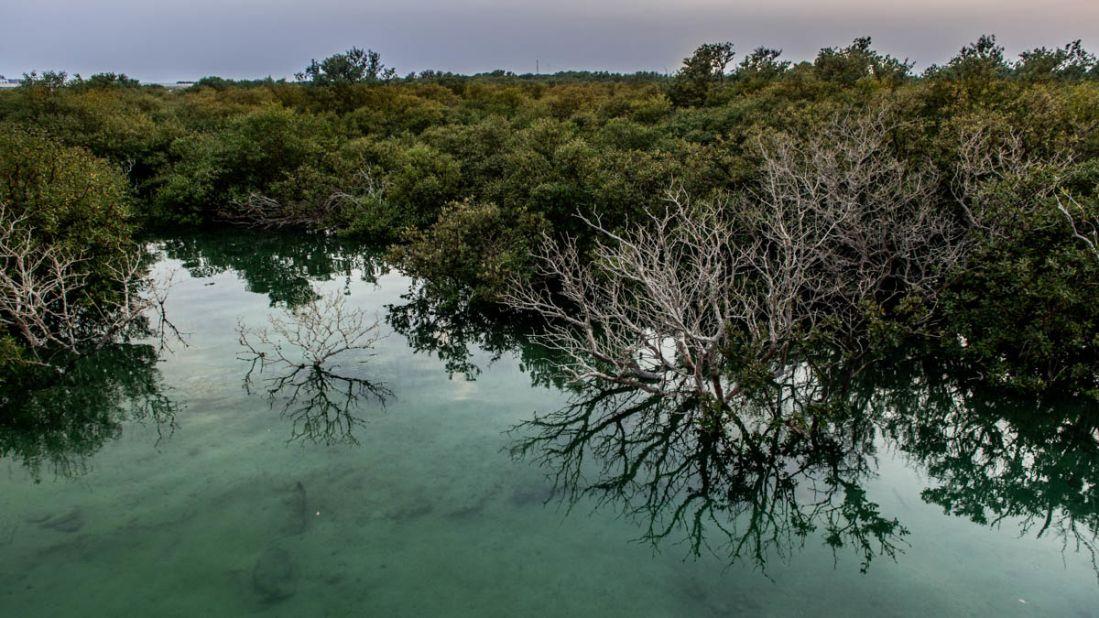Sponsored
Exploring the North of Qatar: A Comprehensive Tour

The northern region of Qatar is a treasure trove of historical landmarks, natural beauty, and cultural heritage. From ancient archaeological sites and pristine beaches to vibrant markets and traditional crafts, this area offers a unique glimpse into the country's rich past and dynamic present. This article provides a comprehensive guide to the North Of Qatar Tour, exploring its major attractions, activities, and experiences, perfect for visitors seeking to delve deep into the heart of this fascinating region.
Chapter 1: Historical Landmarks
Al Zubarah Archaeological Site
Al Zubarah, a UNESCO World Heritage Site, is one of Qatar’s most significant historical landmarks. This ancient pearl fishing and trading port was established in the 18th century and abandoned in the early 19th century. The site includes a well-preserved fort and the ruins of a once-thriving town, offering a fascinating glimpse into Qatar’s past.
Al Zubarah Fort
Built in 1938, Al Zubarah Fort is a striking example of traditional Qatari architecture. The fort, which was initially a coast guard station, has been restored and now serves as a museum showcasing artifacts and exhibits related to the site’s history.
Excavations and Findings
Ongoing archaeological excavations at Al Zubarah have uncovered a wealth of artifacts, including pottery, coins, and tools. These findings provide valuable insights into the daily life, trade, and culture of the town’s inhabitants.
Al Ruwais
Al Ruwais, one of the oldest towns in Qatar, is located at the northern tip of the peninsula. It has a rich history as a fishing and pearling village and remains a vibrant community today. The town is known for its traditional houses, bustling fish market, and scenic coastal views.
Al Ruwais Mosque
The Al Ruwais Mosque, one of the oldest mosques in Qatar, is a notable landmark. Its simple yet elegant architecture reflects the traditional style of Qatari mosques, and it continues to serve as a place of worship for the local community.
Fishing and Pearling Heritage
Visitors to Al Ruwais can explore the town’s fishing and pearling heritage through local museums and cultural centers. These institutions offer exhibits on traditional fishing techniques, pearl diving equipment, and the economic importance of these industries to the region.
Chapter 2: Natural Attractions
Al Thakira Mangroves
The Al Thakira Mangroves, located near the town of Al Khor, are a unique and ecologically important natural attraction. This vast expanse of mangrove forest is home to a diverse array of wildlife, including flamingos, herons, and fish species.
Kayaking and Bird Watching
Kayaking through the mangroves is a popular activity, allowing visitors to explore the waterways and observe the abundant birdlife up close. Bird watchers will be delighted by the variety of species that inhabit this lush ecosystem.
Ecological Significance
The mangroves play a crucial role in maintaining the ecological balance of the region, providing a habitat for marine life and protecting the coastline from erosion. Conservation efforts are underway to preserve this vital natural resource.
Fuwairit Beach
Fuwairit Beach, known for its soft white sands and crystal-clear waters, is a popular destination for beachgoers and nature enthusiasts. The beach is also an important nesting site for the endangered hawksbill turtle.
Turtle Nesting Season
During the turtle nesting season, typically from April to July, visitors can witness the remarkable sight of turtles laying their eggs on the beach. Conservation programs are in place to protect the nests and ensure the hatchlings make it safely to the sea.
Water Sports and Recreation
Fuwairit Beach is also a great spot for water sports, including snorkeling, paddleboarding, and kite surfing. The clear waters and gentle waves create ideal conditions for these activities.
Chapter 3: Cultural Experiences
Al Khor and Al Thakhira Museum
The Al Khor and Al Thakhira Museum offers an in-depth look at the region’s history and culture. The museum’s exhibits cover a wide range of topics, from the area’s prehistoric times to its role in the pearl diving and fishing industries.
Traditional Crafts and Artifacts
The museum features a collection of traditional crafts and artifacts, including fishing nets, pearl diving gear, and pottery. Visitors can learn about the skills and techniques used by Qatari artisans over the centuries.
Educational Programs and Workshops
The museum also offers educational programs and workshops for visitors of all ages. These programs provide hands-on experiences in traditional crafts, such as pottery making and weaving, and offer insights into the cultural heritage of the region.
Souq Al Wakra
Souq Al Wakra, located in the town of Al Wakra, is a bustling market that offers a taste of traditional Qatari life. The souq features a wide variety of shops and stalls selling everything from spices and textiles to handicrafts and souvenirs.
Traditional Qatari Cuisine
The souq is also a great place to sample traditional Qatari cuisine. Visitors can enjoy dishes such as machboos (spiced rice with meat), thareed (bread soaked in stew), and luqaimat (sweet dumplings). The lively atmosphere and aromatic scents make for an unforgettable dining experience.
Cultural Performances
Souq Al Wakra often hosts cultural performances, including traditional music, dance, and storytelling. These performances provide a captivating glimpse into Qatar’s rich cultural traditions and are a highlight for many visitors.
Chapter 4: Adventure and Outdoor Activities
Desert Safari
The northern deserts of Qatar offer a thrilling adventure for those looking to experience the rugged beauty of the landscape. Desert safaris typically include dune bashing, camel riding, and sandboarding.
Dune Bashing
Dune bashing, a popular activity in Qatar, involves driving a 4x4 vehicle over the rolling sand dunes. The exhilarating ride offers stunning views of the desert and is sure to get your adrenaline pumping.
Camel Riding
Camel riding is a more leisurely way to explore the desert and experience a traditional mode of transportation. Riders can enjoy the serene beauty of the desert landscape and learn about the significance of camels in Qatari culture.
Al Jumail Fishing Village
Al Jumail, an abandoned fishing village, offers a fascinating glimpse into the past. The village’s ruins, including old houses and a mosque, provide a poignant reminder of the once-thriving community that lived there.
Exploring the Ruins
Visitors can wander through the village and explore the ruins, gaining insights into the architecture and way of life of the early settlers. The site is a photographer’s dream, with its atmospheric remains and stark desert backdrop.
Fishing Heritage
Al Jumail’s fishing heritage is still evident in the village’s layout and the remnants of fishing equipment. Informational signs and exhibits provide context about the village’s history and its importance to the local economy.
Chapter 5: Accommodation and Dining
Traditional Qatari Hospitality
The northern region of Qatar offers a range of accommodation options, from luxury resorts to traditional guesthouses. Many of these establishments are known for their warm hospitality and authentic Qatari decor.
Luxury Resorts
Luxury resorts, such as those found in Al Khor and Al Thakira, offer world-class amenities and stunning views of the surrounding landscape. These resorts provide a perfect base for exploring the region while enjoying a high level of comfort and service.
Traditional Guesthouses
For a more authentic experience, visitors can stay in traditional guesthouses, known as majlis. These guesthouses offer a glimpse into Qatari life and are often located in picturesque settings, such as near the coast or in the desert.
Dining in the North of Qatar
The northern region boasts a variety of dining options, ranging from fine dining restaurants to casual eateries. Many establishments specialize in traditional Qatari cuisine, offering dishes made from locally sourced ingredients.
Seafood Specialties
Given the region’s proximity to the sea, seafood is a highlight of the local cuisine. Dishes such as grilled fish, shrimp biryani, and seafood stew are popular choices. Many restaurants also offer freshly caught fish, prepared to order.
Traditional Qatari Dishes
In addition to seafood, visitors can enjoy a range of traditional Qatari dishes. Popular options include harees (a slow-cooked dish of wheat and meat), balaleet (sweet vermicelli noodles with eggs), and margoog (a meat and vegetable stew).
Chapter 6: Planning Your Tour
Best Time to Visit
The best time to visit the northern region of Qatar is during the cooler months, from November to April. During this period, the weather is pleasant, making it ideal for outdoor activities and sightseeing.
Weather Considerations
It’s important to be prepared for the desert climate, with hot days and cooler nights. Lightweight, breathable clothing, sunscreen, and plenty of water are essential for staying comfortable during your tour.
Transportation and Accessibility
The northern region of Qatar is easily accessible by car, with well-maintained roads connecting major towns and attractions. Renting a car or hiring a driver is a convenient way to explore the area at your own pace.
Guided Tours
For those who prefer a more structured experience, guided tours are available. These tours often include transportation, meals, and knowledgeable guides who can provide insights into the region’s history and culture.
Travel Tips
Respect Local Customs: Qatar is a conservative country, and it’s important to dress modestly and respect local customs and traditions.
Stay Hydrated: The desert climate can be dehydrating, so it’s important to drink plenty of water, especially during outdoor activities.
Use Sun Protection: Sunscreen, hats, and sunglasses are essential for protecting yourself from the strong sun.
Be Prepared for Sand: Sand can get everywhere, so it’s a good idea to bring a scarf or bandana to protect your face and a bag to keep your belongings sand-free.
Conclusion
The northern region of Qatar is a captivating destination that offers a rich tapestry of history, culture, and natural beauty. From exploring ancient archaeological sites and pristine beaches to experiencing traditional Qatari hospitality and cuisine, visitors are sure to leave with lasting memories of their journey. Whether you’re an adventure seeker, history buff, or cultural enthusiast, the North of Qatar has something to offer for everyone.



